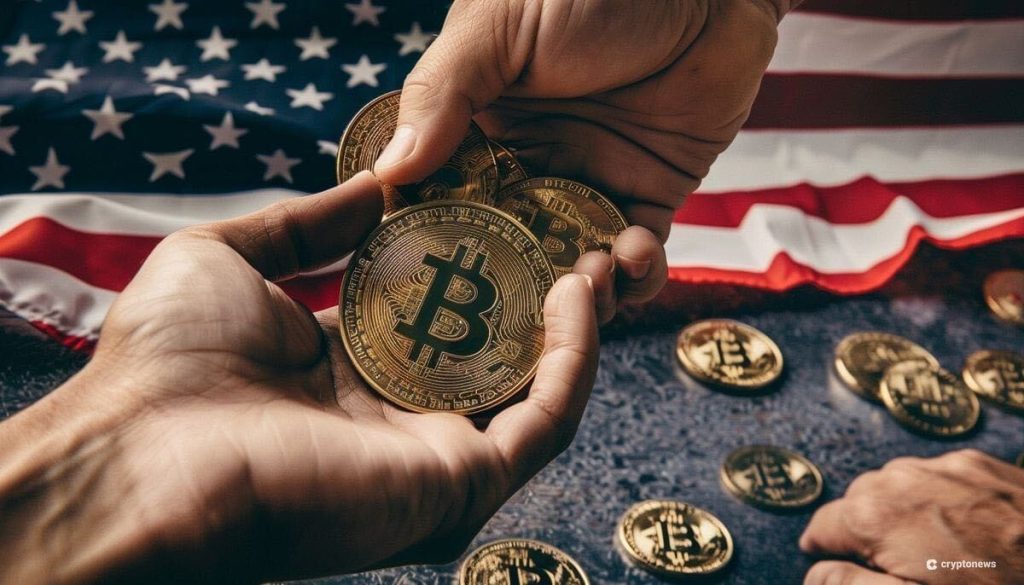Stephan Lutz, the CEO of BitMEX Group, believes that the US crypto market is headed towards integrating more with traditional finance (TradFi) due to the unique regulations and customer needs in the country. Unlike other regions, the US may see crypto becoming more intertwined with its existing financial systems. Lutz highlighted this shift at the Token2049 event in Singapore, noting that major US crypto companies like Coinbase, Circle, and Kraken are increasingly aligning with traditional finance and becoming digital extensions of the traditional financial sector. This divergence sets the US crypto market on a different course compared to other global regions. Recent developments, such as Morgan Stanley allowing its financial advisors to recommend shares of Bitcoin ETFs and PayPal enabling cryptocurrency services for its business clients, indicate that cryptocurrencies are gaining more acceptance in the TradFi sector. This trend could attract more investors and businesses to the crypto space, leading to a collaborative financial environment where traditional finance and digital assets complement each other.
Lutz also pointed out that the US crypto market primarily serves customers with established banking access, while markets in Asia and other international regions have different financial needs that require tailored crypto solutions. In Asia, the financial landscape is divided between the “banked” (wealthy individuals, investors, and corporations) and the “unbanked” (more than half of the population). Cryptocurrency plays a crucial role in addressing the financial needs of the unbanked, especially in facilitating cross-border remittances. These varying financial realities in different regions are shaping the evolution of the crypto industry, with Asia focusing more on practical solutions for financial inclusion. Additionally, Lutz highlighted that India is poised to become a significant player in the crypto space in the next decade due to its openness to crypto and potential to control its monetary policy, which could drive growth in the industry.
The actions taken by companies like Morgan Stanley and PayPal in offering cryptocurrency services suggest a growing acceptance and integration of digital assets in the traditional finance sector. As more traditional finance institutions begin to provide services related to cryptocurrencies, it opens up opportunities for innovative financial products and services in the industry. This shift could potentially attract a broader range of investors and businesses into the crypto space, creating a financial ecosystem where traditional finance and digital assets collaboratively operate. The convergence of digital assets with traditional financial systems in the US market marks a significant departure from the global landscape and indicates a new direction for the integration of crypto within traditional finance structures.
In the US, the increasing alignment between major crypto companies and traditional finance institutions signifies a shift towards a more integrated financial ecosystem where digital assets play a pivotal role. This movement towards merging crypto with traditional finance is driven by regulatory requirements and the evolving needs of customers in the US market. The endorsement of Bitcoin ETFs by companies like Morgan Stanley and the introduction of cryptocurrency services by PayPal to its business clients reflect a broader acceptance of digital assets within traditional financial structures. This trend could pave the way for a more collaborative relationship between traditional finance and the crypto industry, creating opportunities for enhanced financial services and products that cater to a broader range of investors and businesses in the US market.
While the US market is moving towards greater integration with traditional finance, Asia and other international regions are focusing on developing tailored solutions to address specific financial needs, such as financial inclusion for the unbanked population. The diverse financial landscapes in different regions are shaping the evolution of the crypto industry, with Asia emphasizing practical solutions that cater to a range of financial requirements. India, in particular, is identified as a key player in the future of the crypto space, given its openness to crypto and potential to exert control over its monetary policy. As different regions adopt varying approaches to crypto integration and regulation, the global crypto market is evolving in different directions, each with unique challenges and opportunities for growth and innovation.












